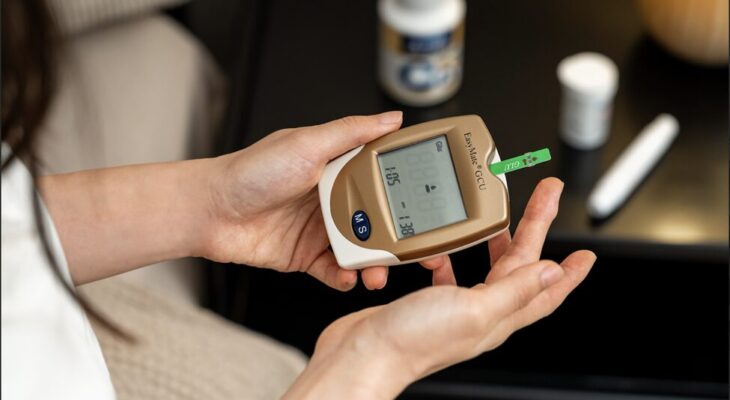Accurate diagnostic tools are essential for maintaining good health. Whether you’re a doctor setting up a clinic or someone monitoring your health at home, choosing the right equipment is important. With so many options available, it can be hard to know which one is best.
This guide is here to help. It highlights the key factors to consider when selecting medical diagnostic equipment. By understanding your needs, the types of devices available, and how they work, you can choose equipment that gives accurate results and helps provide better healthcare.
Why the Right Choice Matters
Choosing the right medical diagnostic equipment is essential for getting accurate health information, whether you’re at home or in a clinic. Accurate diagnostic tools provide trustworthy information about your health. Reliable results help you and your healthcare provider make better decisions, such as adjusting treatments, managing ongoing conditions, or preventing health problems early. Without reliable results, decisions could be wrong or delayed, which may impact your health.
Home vs. Clinic: Different Needs
Home Use: Devices for personal use should be easy to use, portable, and simple to maintain. When devices are convenient, people are more likely to monitor their health regularly, which is especially important for those managing chronic conditions like diabetes or for elderly family members who need constant care.
Clinic Use: Medical equipment for clinics or hospitals needs to be durable, reliable, and capable of handling multiple patients efficiently. It should also integrate smoothly with healthcare systems, like electronic medical records, to ensure consistent and effective patient care.
Long-Term Value Comes from Accuracy, Ease of Use, and Cost
Investing in reliable diagnostic equipment may require a higher initial cost, but it pays off in the long run:
Less Maintenance: High-quality devices require fewer repairs and replacements.
Greater Efficiency: Accurate readings save time for both patients and healthcare providers.
Better Health Outcomes: Precision in diagnostics supports better-informed treatment decisions and improved patient care.
Choosing the right medical diagnostic equipment isn’t just about convenience; it’s about ensuring safety, reliability, and effectiveness. Whether for home use or a clinic, prioritizing accuracy, suitability for the environment, and long-term value helps achieve the best possible health outcomes.
Key Factors to Consider When Choosing Medical Diagnostic Equipment
Choosing the right medical diagnostic equipment is crucial for accurate diagnoses, effective treatments, and better patient outcomes. Whether you’re setting up a home health system or outfitting a clinic, these key factors can guide your decision:
1. Tests Needed: Single-Function vs. Multifunction Devices
Single-Function Devices: Designed for specific measurements, like a blood pressure monitor or thermometer. They are ideal for regular, routine checks.
Multifunction Devices: Combine several tests in one unit, such as ECG, pulse, oxygen levels, and temperature. These devices are versatile, save space, and can streamline monitoring.
Consider your most common testing needs before choosing between a specialized device or a multifunctional one.
2. Certifications: FDA, CE, ISO for Safety and Reliability
FDA (U.S.): Confirms the device is safe and effective.
CE (Europe): Ensures compliance with European health, safety, and environmental standards.
ISO 13485: Indicates the manufacturer follows strict quality management practices for medical devices.
Selecting certified equipment gives you confidence that it has been thoroughly tested and meets international standards for safety and performance.
3. Ease of Use & Data Management
User-Friendly Interface: Simple controls and clear displays make it easier for anyone to operate them correctly. This reduces the chance of mistakes, speeds up learning, and ensures consistent, accurate results, whether in a home or clinical setting.
App Connectivity: Enables real-time monitoring and remote consultations via mobile applications.
EMR Integration: Connects seamlessly with Electronic Medical Records, improving workflow and data management.
Devices with these features make operations smoother, save time, and support better patient care.
When selecting medical diagnostic devices, consider your specific testing needs, check that the device has the required certifications, and look at its ease of use and data management features. Paying attention to these factors helps ensure accurate results, smoother operations, and better patient outcomes.
The Rise of Multifunctional Medical Devices
Multifunctional medical devices are changing the way people monitor their health. These compact devices combine several diagnostic tests in one, making them ideal for both personal and clinical use. Most commonly, they measure blood glucose, total cholesterol, and uric acid, and some models even check hemoglobin.
Key Benefits
Save Space and Money: Instead of buying separate devices for each test, you only need one. This not only saves physical space but also reduces costs.
Convenience: These meters are easy to use and require only a small blood sample. Many models deliver fast results, measuring glucose in 5 seconds, uric acid in 15 seconds, and cholesterol in 26 seconds.
Better Health Monitoring: Regularly checking key health indicators, like glucose, cholesterol, and uric acid, helps you detect problems early and manage conditions such as diabetes, heart disease, and gout.
Notable Products
Bioptik EasyTouch GCU 3-in-1 – The Bioptik EasyTouch GCU 3-in-1 is a compact, user-friendly device that measures blood glucose, cholesterol, and uric acid. It delivers fast results with a small blood sample, making it ideal for home use or clinics needing quick and accurate measurements.
Bioptik EasyMate GCHb – The Bioptik EasyMate GCHb is a portable device that measures blood glucose, cholesterol, and hemoglobin. It provides fast results in under a second and is ideal for individuals managing multiple health conditions and healthcare professionals.
Bioptik EasyMate Plus 5 in 1 – The Bioptik EasyMate Plus 5-in-1 measures blood glucose, cholesterol, uric acid, hemoglobin, and triglycerides. Lightweight and easy to use, it features a large LCD screen, light reminders, and smart functions like sample volume, strip expiration, and environment detection. Ideal for comprehensive health monitoring at home or in clinics.
These multifunctional meters are useful for families and clinics. They offer a practical, all-in-one solution for comprehensive health monitoring.
Bioptik Technology: Making Health Monitoring Simple and Accurate

Bioptik Technology Inc. is leading the way in multifunctional diagnostic devices, combining accuracy, portability, and multiple health tests in one compact, easy-to-use tool. These devices are ideal for both personal wellness and clinical use.
Bioptik’s Multifunctional Devices
Bioptik’s EasyTouch and EasyMate series can measure several key health indicators, including blood glucose, cholesterol, uric acid, and hemoglobin. They deliver accurate results using only a small blood sample, making them easy to use even for people without medical training.
For example, the EasyTouch GCU is a multiparameter meter designed to simplify health monitoring. It features a large LCD screen and automatic strip recognition, allowing users to test quickly, accurately, and with minimal effort.
Key Benefits
Accurate Results: Reliable readings for important health indicators.
Convenient and Portable: Compact design makes it easy to use at home or on the go.
User-Friendly: Simple controls and clear displays ensure anyone can monitor their health confidently.
Bioptik’s multifunctional diagnostic devices make health monitoring accurate, convenient, and stress-free. They empower families and clinics to take charge of health with confidence, all through one easy-to-use tool.





